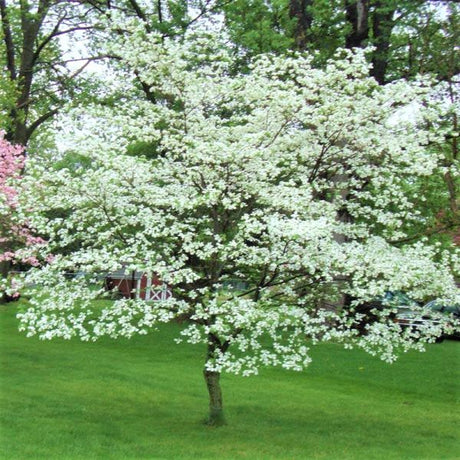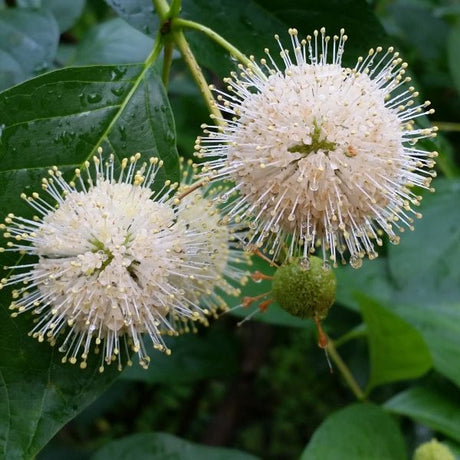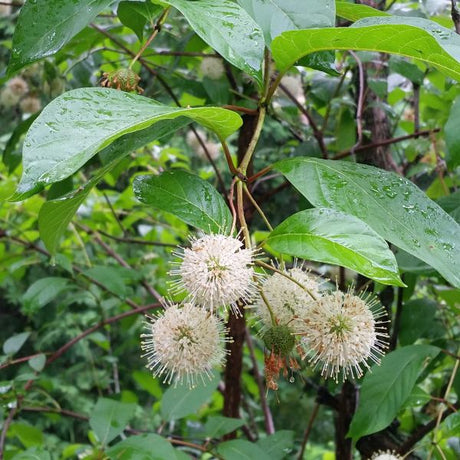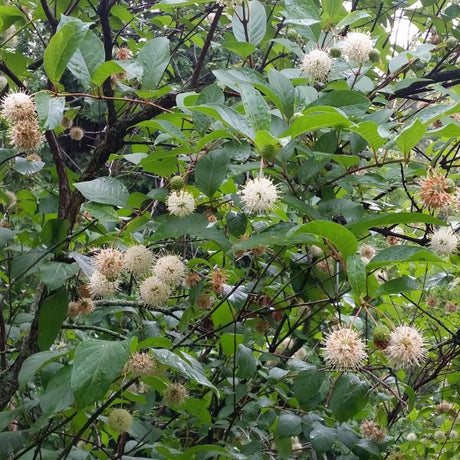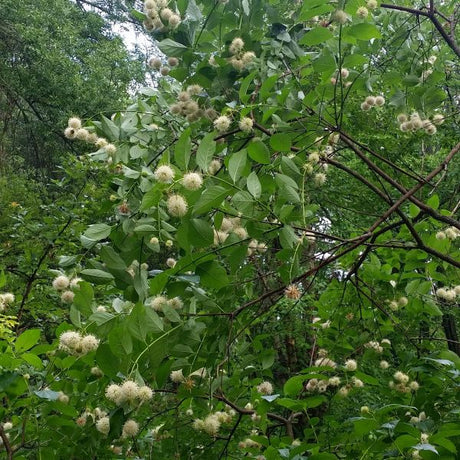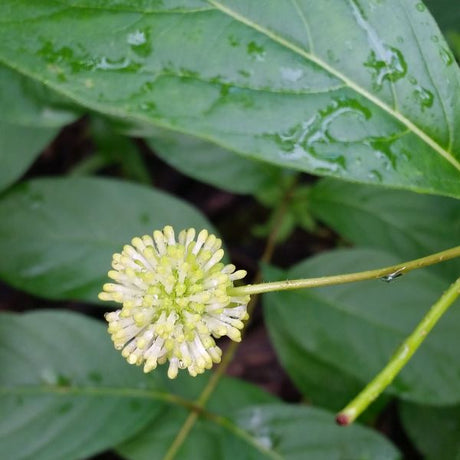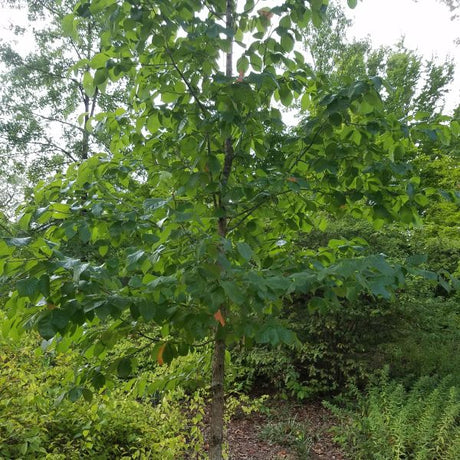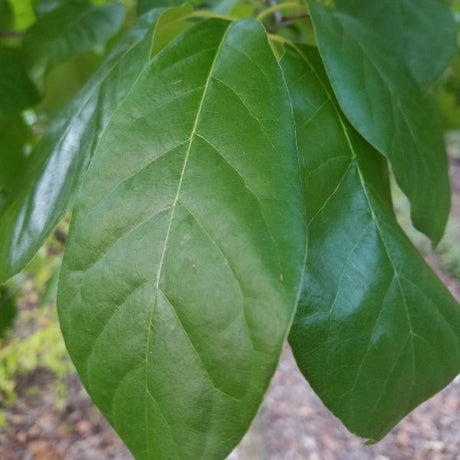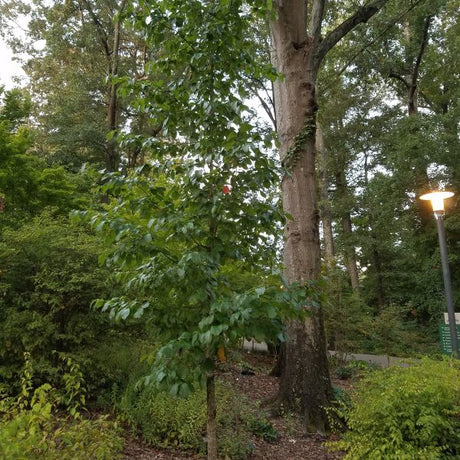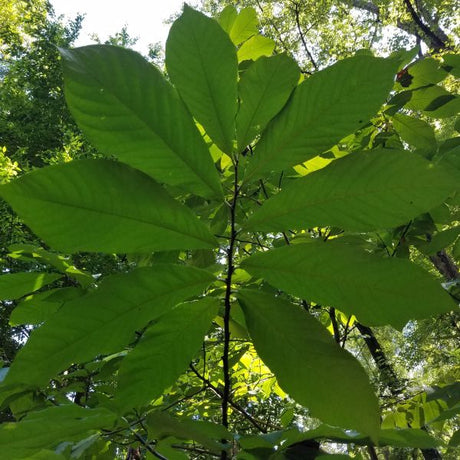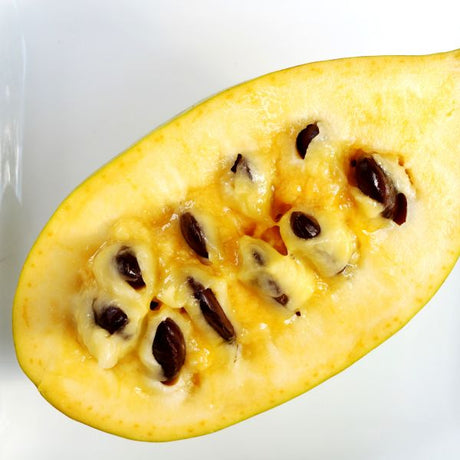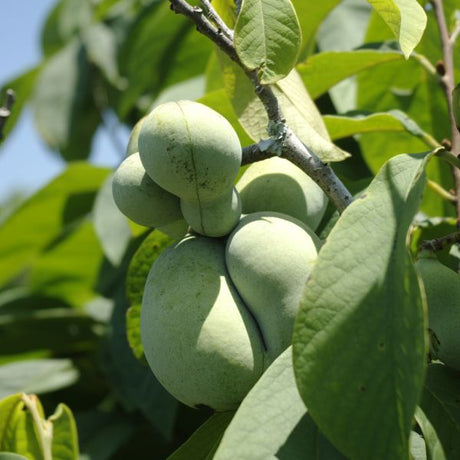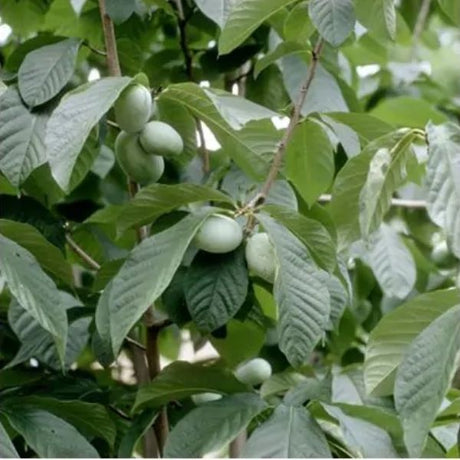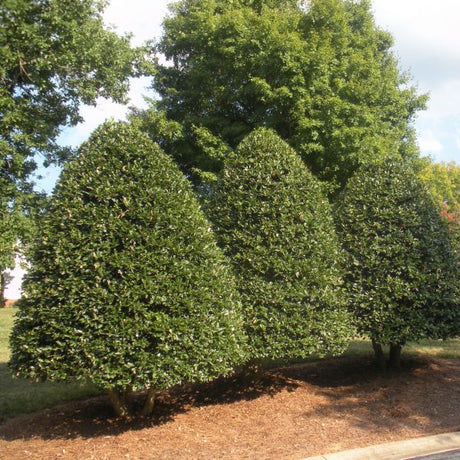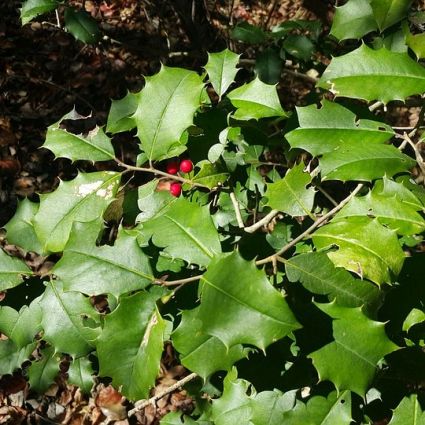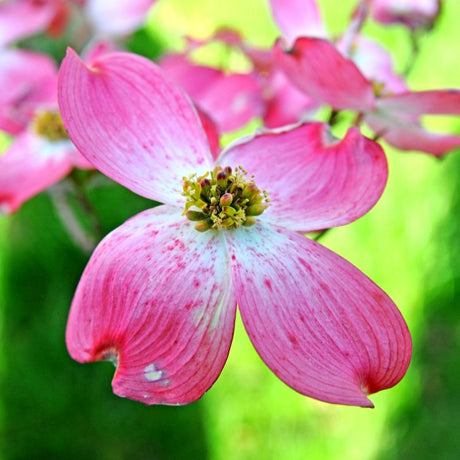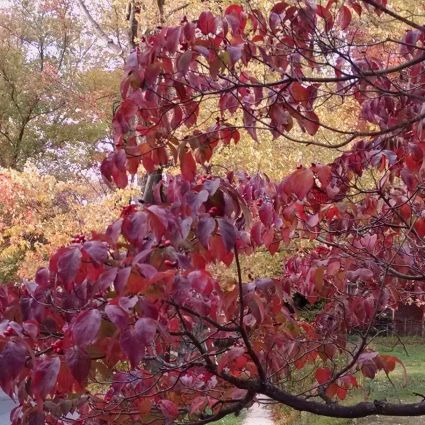-
Up to 12% off
Cornus florida
Sale price From $4988 Regular price $5688Unit price /Unavailable -
-
-
1% off
-
-
Sold outUp to 15% off
-
Sold out
Cornus florida f. rubra
Regular price From $7962Unit price /Unavailable -
Sold out
Native Trees For The State of Maine
Want to help keep native trees growing in your state? Find the best selection of indigenous species for the State of Maine here at Nature Hills Nursery!

Ranging from USDA growing zones 4 to 5, Maine has cold, snowy winters and mild summers, so you need trees that can handle it all! As a transitional zone between boreal forests and eastern deciduous forest covering 90% of the state.
Choosing native trees for your State means you will know your tree will thrive where it is well suited to climate and soil because they originated there! They need less water once established. Native selections establish faster and tolerate local growing zones, climate, weather, and anything else your State can throw at them.
Plus you’ll feed pollinators, songbirds like the Black-Capped Chickadee, which is the state bird, and other wildlife by providing them with a tree they recognize for food and shelter!
Best Maine Native Trees

New England's reputation for a rugged climate, weather, lots of snow, and Nor'easters, Maine's weather is relatively mild with plenty of year-round precipitation and seldom sees drought. The rocky coast needs trees that handle harsh cold and salt spray, the inland trees must handle lots of snow, and freshwater and peatland biomes in the state need trees that can withstand moist conditions.
First, find your Hardiness Zone, and then choose any tree that has a range that includes yours! Check with your local County Extension Office for more information if needed and for the many microclimates within these zones.
Best Native Evergreen Trees For Maine
These Maine native Evergreen Trees, like the state tree the Eastern White Pine which gives this state its nickname - the Pine Tree State! Choose from these lovely conifers and broadleaf evergreens that keep their leaves or needles year-round for privacy, to slow wind, to stop drifting snow, and to add color through the snowy winters!
- American Arborvitae (Thuja)
- American Larch Tree (deciduous conifer)
- Balsam Fir
- Black Spruce
- Eastern Hemlock Tree
- Eastern Red Cedar (Redcedar)
- Eastern White Pine
- Possomhaw Holly
- Red Pine Tree
- White Fir Trees
- White Spruce Tree
Native Flowering Trees to Grow in Maine
Feed pollinators and hummingbirds nectar and pollen they evolved alongside in your State! Many of these trees are host plants for native pollinator larvae!
- Cucumber Tree Magnolia
- Dogwood Trees - Pagoda, White, Pink, Red & Gray
- Eastern Redbud Tree
- Linden/American Basswood
- Pussy Willow Tree
- Washington Hawthorn
- Witch Hazel (American Witchhazel)
What Are Native Shade Trees in Maine?
There are many fantastic native trees in New England forests and Maine has claimed the White Paper Birch tree as its state tree! While endangered, Birch are fantastic shade trees that shrug off the cold winters.
Other shade trees that handle snow load, give your backyard relief from the sun, and fall color can also be found in this long, slender state!
- American Beech Tree
- American Chestnut
- American Elm Tree
- American Hornbeam Tree
- American Hop Hornbeam
- American Sycamore
- Birch Trees - River, Paper Bark, & Sweet
- Black Gum (Blackgum) Tree
- Black Locust Tree
- Black Willow
- Box Elder Tree (Boxelder)
- Cottonwood/Eastern Cottonwood Tree
- Kentucky Coffeetree (Coffee Tree)
- Maple Trees - Red, Silver & Sugar
- Mountain Ash Tree
- Northern Catalpa Tree
- Oak Trees - Black, Bur, Chestnut Oak, Pin, Northern Red, Scarlet, Willow, White & Swamp White
- Ohio Buckeye
- Quaking Aspen Trees
- Sassafras Tree
- Yellowwood Tree
Native Fruit & Nut Trees in Maine
We love edible landscaping trees that add great curb appeal and feed you! You will feed the diverse wildlife and songbirds found throughout Maine as well!
- American Plum/Wild Plum Tree
- Black Cherry Tree
- Black Walnut Tree
- Hazelnut/Native American Filbert
- Bitternut, Butternut, Pignut, Red, Shellbark & Shagbark Hickory Trees
- Paw Paw (Pawpaw) Trees
- Allegheny, Downy & Shadblow Serviceberry
Much Needed Natives!
Add shade, flowers, or privacy, or plant a legacy for generations with the help of Nature Hills is here to help you find the perfect tree for your Maine landscape!
Help keep your State's biodiversity intact by planting trees native to your area! Nature Hills is committed to helping you preserve every State’s unique beauty with plants and trees that are sure to do well in your garden without impacting your state's ecology!
FAQ's for Buying Maine Native Plants Online
What are the best native trees to grow in Maine?
What are the best native trees to grow in Maine?
Maine gardeners can rely on hardy, cold-tolerant native trees that thrive in USDA Zones 4 and 5. Top picks include the Eastern White Pine (the state tree), Balsam Fir, Red Maple, Paper Birch, and Black Cherry. These trees are naturally adapted to Maine’s snowy winters, mild summers, and varied terrain from rocky coasts to inland forests.
Why should I plant native trees in my Maine landscape?
Why should I plant native trees in my Maine landscape?
Native Maine trees are better equipped to handle the region’s climate, heavy snow loads, and year-round moisture. They establish faster, need less supplemental water, and support local wildlife like the Black-Capped Chickadee. Planting native also helps preserve Maine’s rich forest ecosystems and contributes to pollinator and songbird habitat.
Which evergreen trees are native to Maine?
Which evergreen trees are native to Maine?
Maine is known as the Pine Tree State for good reason! Eastern White Pine, Balsam Fir, Red Pine, and American Arborvitae are all native evergreens that provide year-round privacy, wind protection, and winter color. These trees are perfect for withstanding harsh Nor’easters and add structure to your landscape all year long.
Are there native flowering trees that attract pollinators in Maine?
Are there native flowering trees that attract pollinators in Maine?
Yes! Native flowering trees like Dogwood, Eastern Redbud, American Basswood (Linden), and Witch Hazel support Maine’s pollinators, including bees, butterflies, and hummingbirds. These trees bloom beautifully in spring or fall and serve as host plants for native insect species, creating a healthy, balanced ecosystem in your yard.
Can I grow native fruit and nut trees in Maine?
Can I grow native fruit and nut trees in Maine?
Absolutely. Maine’s climate supports edible native trees like American Plum, Black Cherry, Hazelnut, Black Walnut, and Serviceberry. These trees offer seasonal beauty, attract birds and wildlife, and provide fresh, local harvests. They’re ideal for anyone interested in edible landscaping that supports biodiversity.


